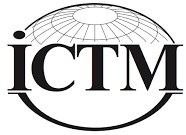Top Qs
Timeline
Chat
Perspective
International Council for Traditional Music
Non governmental music organization From Wikipedia, the free encyclopedia
Remove ads
The International Council for Traditional Music (ICTM) is a scholarly non-governmental organization which focuses on the study, practice, documentation, preservation, and dissemination of traditional music and dance of all countries. Founded in London on September 22, 1947, it publishes the Yearbook for Traditional Music once a year and the Bulletin of the ICTM[1] three times a year. The organization was previously known as The International Folk Music Council (IFMC). In 1949, it helped found the UNESCO International Music Council and remains a non-governmental organization in formal consultative relations with UNESCO.
As a non-governmental organization in formal consultative relations with UNESCO and by means of its wide international representation and the activities of its Study Groups, the International Council for Traditional Music acts as a bond among peoples of different cultures and thus contributes to the peace of humankind.[2]
Remove ads
Conferences
Summarize
Perspective
ICTM conferences have been held since 1948 and are presently biennial. In 2009, the site of the ICTM World Conference was Durban, South Africa, in 2011 it was St. John's Newfoundland, in 2013 Shanghai, China, in 2015 Astana, Kazakhstan, in 2017 Limerick, Ireland,[3] and in 2019 it was in Bangkok, Thailand.[4] The 2021 conference was postponed until July 2022 due to the COVID-19 pandemic.
The 47th ICTM World Conference was held between July 13, 2023 and July 19, 2023 at the ultra-modern Cedi Conference Center University of Ghana, Legon.[5]
Remove ads
Publications
- Yearbook for Traditional Music (originally known as the Journal of the International Folk Music Council from 1949–1958)
- Bulletin of the ICTM (originally known as Bulletin of the IFMC)
World Network
The Council is represented by individuals, called Liaison Officers, and representatives of organisations, called National and Regional Committees. They all act as links between the Council and the community of individuals and organizations involved with traditional music and dance in their country or region.
As of January 2019, the International Council for Traditional Music is officially represented in 129 countries or regions.[6]
Presidents
- Svanibor Pettan (2021–2025)
- Salwa El-Shawan Castelo-Branco (2013–2021)
- Adrienne L. Kaeppler (2005–2013)
- Krister Malm (1999–2005)
- Anthony Seeger (1997–1999)
- Erich Stockmann (1982–1997)
- Poul Rovsing Olsen (1977–1982)
- Klaus P. Wachsmann (1973–1977)
- Willard Rhodes (1967–1973)
- Maud Karpeles, Honorary President (1963–1976)
- Zoltán Kodály (1961–1967)
- Jaap Kunst (1959–1960)
- Ralph Vaughan Williams (1947–1958)
Remove ads
References
External links
Wikiwand - on
Seamless Wikipedia browsing. On steroids.
Remove ads

